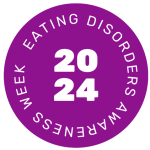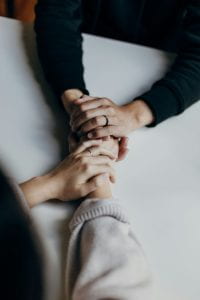Trigger Warning: Eating Disorders
For Eating Disorder Awareness Week (26 February – 3 March), University of Bristol student Helen shares her story in the hope of breaking the stigma of eating disorders and raise awareness of how to help and support your peers.
Hello, my name is Helen and I am a student here at Bristol! This week is Eating Disorder Awareness Week, and I am working with University of Bristol Sport to break the stigma of Eating Disorders (EDs) and to make help more accessible to Bristol students. As someone who spent a long time battling anorexia, I know the pain, isolation and frustration EDs can have on people and their loved ones. I want to do everything I can to ensure others can get the help they need and deserve.
Eating disorders can often be stereotyped, but they do not have a look and they do not discriminate. They are cruel and unforgiving illnesses that can affect any gender, age, ethnicity, background or weight.
Reaching out for help can be incredibly frightening. The awful stigma, damaging stereotypes and competitive and comparative nature of the illness can make you feel as though you are not “sick enough” or in denial, as you try to pretend that everything is okay.
Eating disorders can be incredibly sneaky and secretive, they can creep up slowly and take away little parts of you without you even realizing the devastating impact. They steal your energy, passions and personality. You become cut off from your friends and begin to feel completely alone. It is like your world starts to shrink around you and you become stuck in a vicious cycle of obsessions, compulsions, rules and rituals that no one else can understand.
It is, without a doubt, incredibly difficult to recover from an eating disorder as you try to rewire your brain and retrain your thoughts in a diet-obsessed society. However, it can be equally challenging to support a friend or loved one through recovery. It often seems impossible to find the right things to say and do, as you want to help but do not want to overstep, hurt or hinder.
 Through Eating Disorder Awareness Week, we want to help you to help your peers by giving you the knowledge to spot the subtle signs that may suggest someone is having a tough time with their relationship with food or exercise, and may need professional help. It can be a really tricky and sensitive subject, but we will be offering tips on how you can be there as a friend throughout a recovery journey, and what you can do and say to make someone feel a little less alone.
Through Eating Disorder Awareness Week, we want to help you to help your peers by giving you the knowledge to spot the subtle signs that may suggest someone is having a tough time with their relationship with food or exercise, and may need professional help. It can be a really tricky and sensitive subject, but we will be offering tips on how you can be there as a friend throughout a recovery journey, and what you can do and say to make someone feel a little less alone.
This Eating Disorder Awareness Week, we are wanting to raise awareness of all eating disorders and how they can affect everyone and anyone. We hope to provide support, reassurance and practical advice on how to get help. Everyone is deserving of help and recovery; you are not alone.
Lastly, this week there will be increased talk of eating disorders across the news and social media which may be triggering. Please look after yourself and your loved ones and do not feel afraid to reach out for help.
